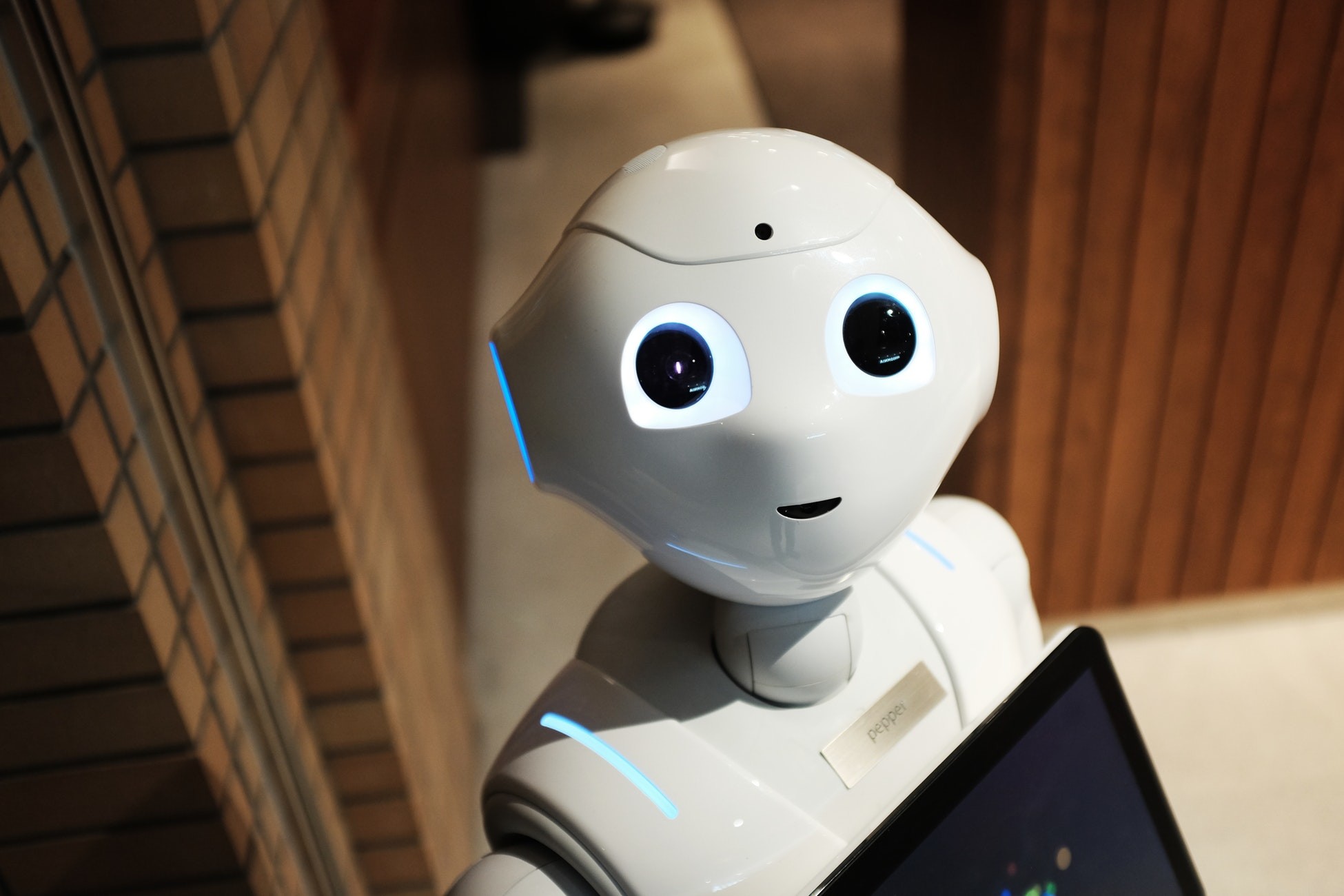It’s recommending our next TV binge-watch, suggesting the best driving routes and even meddling in elections, but is Artificial Intelligence about to revolutionise Market Research?
This was a hot topic at last week’s B2C Marketing Expo in London, where I spoke out about the benefits and dangers of automation.

“Dangers of Automation" talk at B2C Conference, March 22nd, London
AI is increasingly becoming a fixture of the marketing mix, from programmatic ad buying to chatbots helping customers make better product selections. Some of the biggest innovations, however, have been in data and insight, giving marketers a broader toolkit than ever before with which to understand consumer behaviour.
While veteran researchers might remember the days of analogue punch cards and print rooms, today the landscape has changed dramatically. Research methodologies harnessing NLP, Facial Recognition and Eye Tracking technology are providing deeper insights into conversations and physical stimuli than humans alone could detect. Meanwhile, Crowdsourcing, Virtual Focus Groups and Scaled-up Consumer Behavioural Capture, techniques we at Catalyx use in our own CROWD CONVERSATION and MISSION solutions to uncover fresh consumer insights, are making previously difficult-to-reach groups easier to identify, recruit and engage and the data captured much more robust and true to life.
The Case for AI
Indeed, developing AI-powered solutions is becoming a priority among ambitious brands and consultancies.
According to a PwC study, 72% of business leaders believe AI offers a business advantage, while Adobe data reveals that top-performing companies are twice as likely to harness this technology in their marketing than their lower ranked peers. Automation of data analysis and research reports ranked high among areas where AI was expected to make the biggest impact.

So, does this mean time’s up for humans?
Not quite, but there are strong arguments for using automation in research:
- Automation frees up personnel to spend more time on creative and strategic thinking using the data outputs instead of the data gathering.
- It can dramatically reduce the time research takes - from months to hours in some cases. And it can simplify the relationship between agency and client - cutting out much of the back and forth with a standardised process or even click of the mouse.
- It makes complex methods possible and cost-effective, and simplifies those that humans find difficult.
- It is democratising data, lowering barriers to entry from start-ups with innovative methods and ways of engaging with consumers.
Anyone with a few years in research under their belt knows what it’s like to stay in the office late, meticulously cross-referencing a monitor full of Excel spreadsheets. Automation takes the pain out of this task, allowing employees to focus on the fun stuff, like thinking up ideas and creative solutions based on the insights plucked from this data. And as computers don’t register bias, these findings will be based on a truly objective assessment.
On a more pragmatic level, automation reduces the expense of market research: 63% of research buyers believe their budgets will remain unchanged or even decrease in 2018. But that also means providers are under pressure to streamline their operations, delivering value where it counts. But every upside has a downside:
Even Smart Machines are Dumb

Even with the leaps AI has made over the last five years, technology remains fallible. A 2013 report identified that jobs involving creativity or building complex relationships with people were the least likely to be automated.
This could also be said of work interpreting humans’ complicated behaviour and actions, and certainly the strategic ideation needed to cater to this.
So although automation, and its smarter brother AI, are compelling technologies that must be considered in the world of research, its worth considering a few things before jumping in with 2 feet:
- There is a danger that the time and cost-savings from automation won’t be used wisely. Passing this straight to the bottom line is tempting but may be a short term fix, when your competition are investing in truly insight-led brand-building.
- Humans can be unpredictable: attributing behaviour and actions is made easier through a researcher’s personal experience and marketing expertise. If your culture and testing methodology is predominantly around trial and error testing - so called a/b testing - what happens if the best answer is ‘c’? No machine is creative enough to help you dream up ‘c’.
- Not all automated methods are equal: democratisation of data has led to lower barriers to entry in marketing, spawning a proliferation of methods to support companies. Methodologies need to be validated first to understand what works, and what doesn’t.
- The rise of automation can, if not managed carefully, also lead to the rise of fraud in the research industry - professional respondents and even automated research bots designed to trick automation systems are on the rise. A lower cost-per-contact data capture can be tempting, but is the data you are getting genuine?
Remember 2017’s Pepsi ad featuring Kendall Jenner, or the furore caused when H&M used a black child to model a sweater emblazoned with the phrase ‘Coolest Monkey in the Jungle’? Clearly, there is still room for bad strategy to fall through the cracks, even with extra time to properly validate it.
Furthermore, automated approaches can’t detect cultural context nor replicate the role played by an effective moderator. And humans can be wonderfully contrary: one example that tickled the Expo audience was the discovery by a Taiwanese TV show that some rural Chinese use their washing machines not to clean clothes, but to wash the dirt from vegetables before cooking. That’s an ingenious link no computer could have identified.
Augmented Intelligence
Automation alone isn’t the quick fix that some business leaders are betting on.
Making short-term cost savings can be seductive. Utilising a purely automated solution has the potential to boost a company’s bottom line this month, but is it really providing the best ROI for clients or getting to the heart of a business problem that will get you those double-digit share gains you want? While fast response data might slash timelines, it can also lead to errors. Without an extra layer of human verification, respondents may not be who you think they are.
Here at Catalyx, we like to think we’ve identified the best approach, which we call ‘Augmented Intelligence’. This is the marriage of value-creating automation, combined with the creativity of human researchers to comprehensively address a business challenge and recommend ways to go forward.
We are competitive when it comes to capturing data, whatever form it may come in, but we stand apart in the value we generate and ROI we offer when we turn this into brand-building solutions for our clients.
Artificial Intelligence may be the buzzword of the day, but Augmented Intelligence is truly the future.
At Catalyx, we have our clients build better brands, find more compelling insights and create communication and innovation directions that more closely match to consumer needs in 25 different languages across all 5 continents. In doing so we have picked up 2 major awards, been added to the Data 50 Global Leader hall of fame and been recognised by “Next Generation Market Research” for our disruptive innovation and “EXPLOR” for our exemplary online research. Not bad for a 5-year old brand building agency!